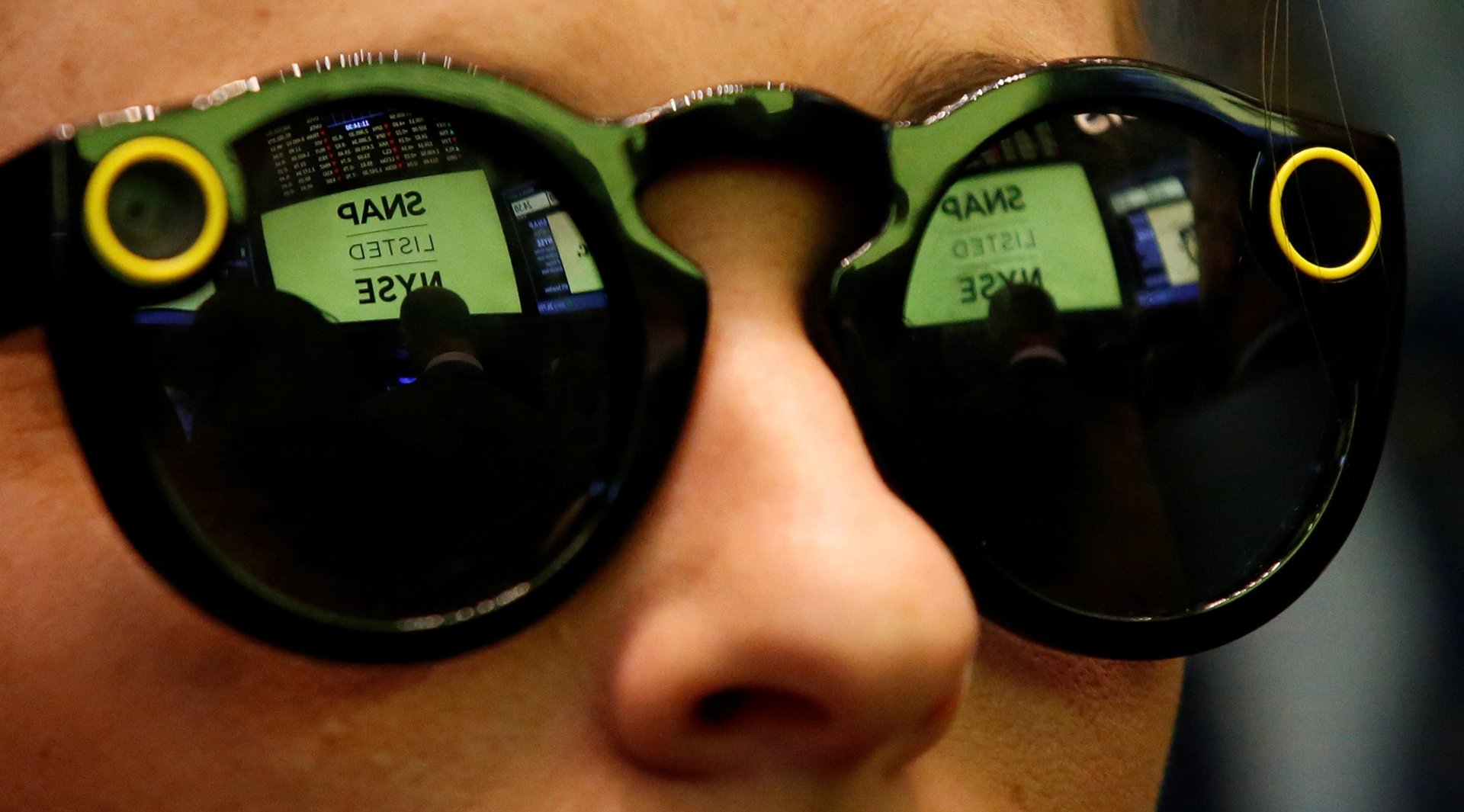Who bought shares in millennial favorite Snap? Probably a lot of millennials
Did Snapchat’s users fuel the IPO of its parent company Snap last week?


Did Snapchat’s users fuel the IPO of its parent company Snap last week?
Despite jokes that Snap shares were bought by a stampede of 50-somethings who barely understand the product, there’s evidence that younger investors may have been in on the frenzy.
Trading volume on Robinhood, a US online broking app popular with millennials, surged 50% March 2, the stock’s first day of trading, the Wall Street Journal reported (paywall), adding that the median age of Snap buyers was 26, the same age as the CEO and founder of Snap, Evan Spiegel. (The median age of a Robinhood user is 29.)
In a survey of 6,000 Robinhood users released before the IPO, 35% said they planned on buying shares and another 35% said they were considering it, according to USA Today.
Snap, which owns the disappearing messaging app and is developing cameras, soared 44% on it’s first day of trading, closing at $24.48 after opening at $17. The stock was still going strong after three days, trading about $25 on Monday at around noon EST.
There was a huge appetite of Snap among small investors generally, driven by the publicity the IPO generated and the widespread use of Snapchat. While professional investors may be agnostic about what stocks they own, shareholders with smaller holdings often buy shares in products they know and love. StockPile, an online brokerage that allows investors to buy shares and give them as gifts, said that Snap’s IPO gave it its biggest single day since it launched in 2015.
“These are people that have pride of ownership, they love Snapchat, they use it everyday, and they want to own what they love,” Dan Schatt, a StockPile executive, told Benzinga, an investing website.
While there are plenty of Snap skeptics, the number of retail investors rushing to buy Snap shares may turn into a self-fulfilling prophecy. Benzinga cited a study by consultancy Bain that shows that when investors own stock in a company, they spend more with it and recommend it twice as much as others.
In other words, the more people who invest in Snap, the more likely it is to succeed. Though evangelism hasn’t helped Twitter much.